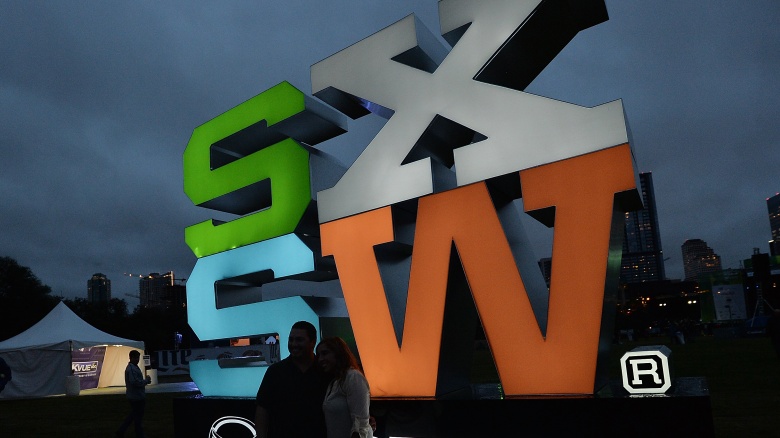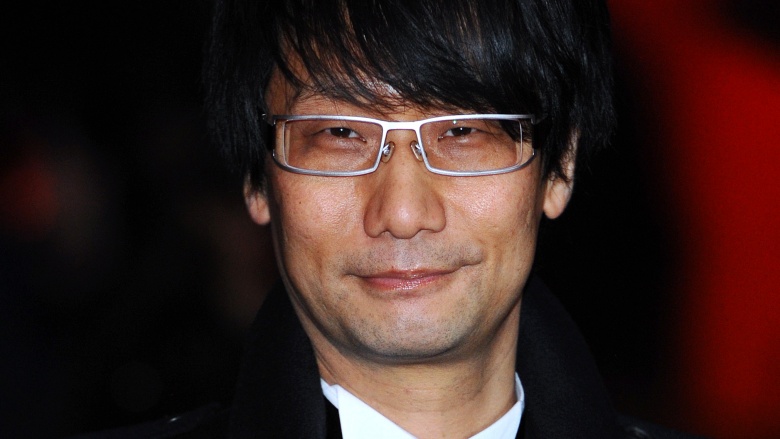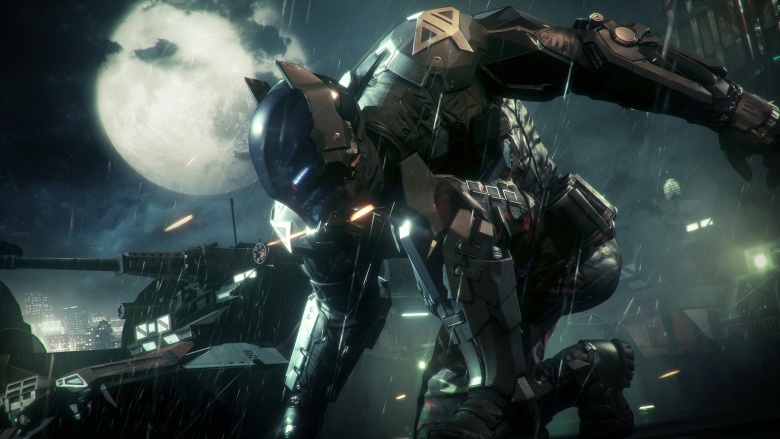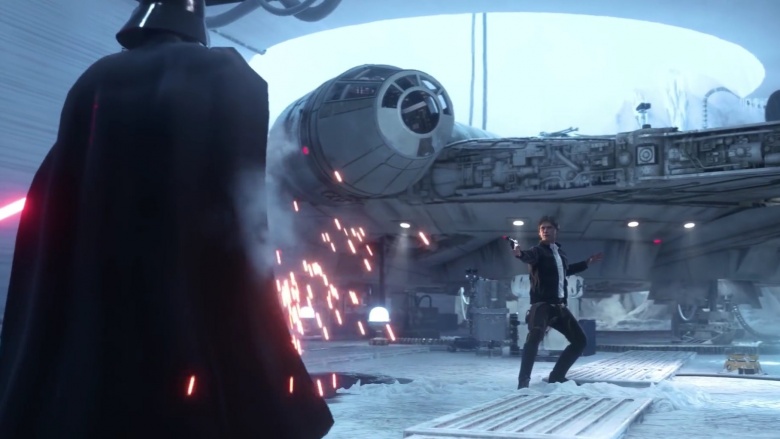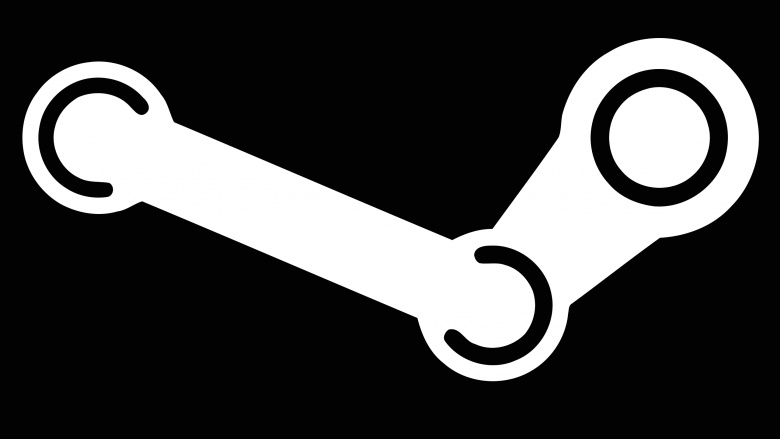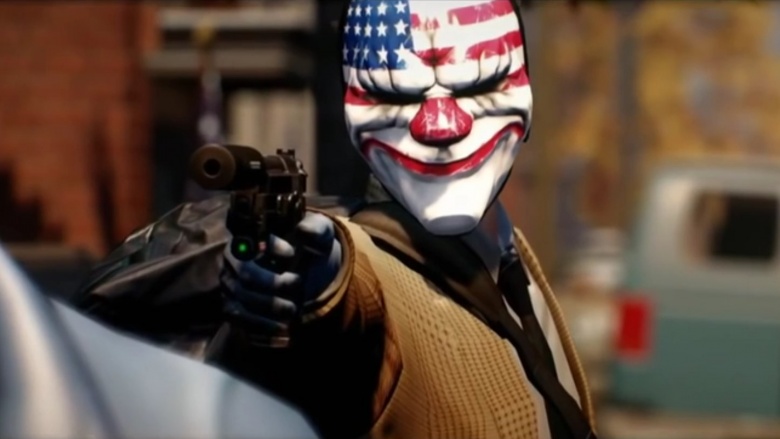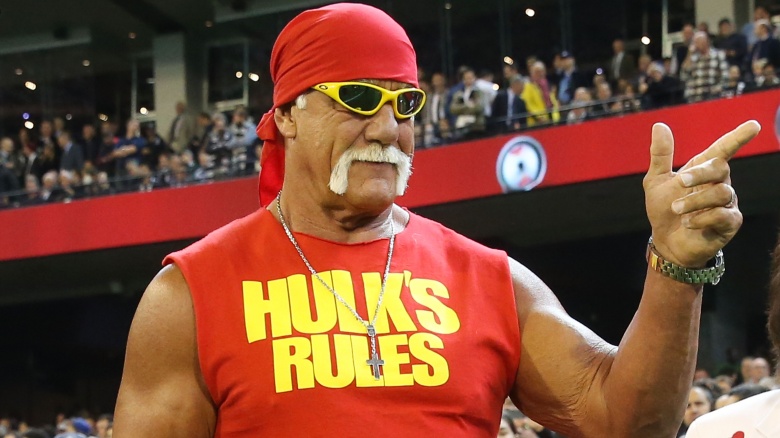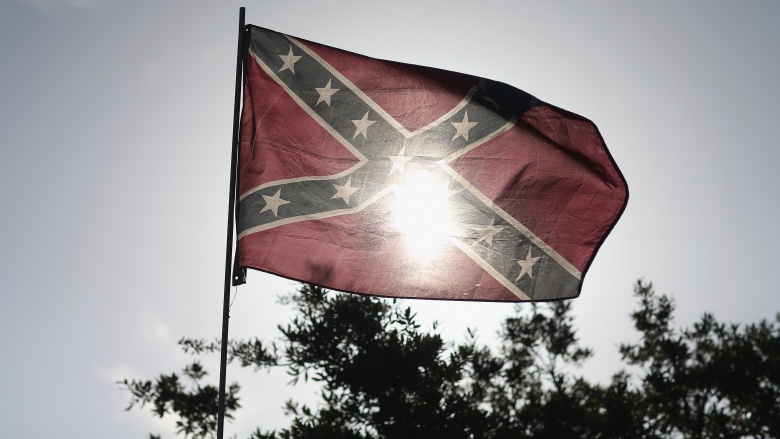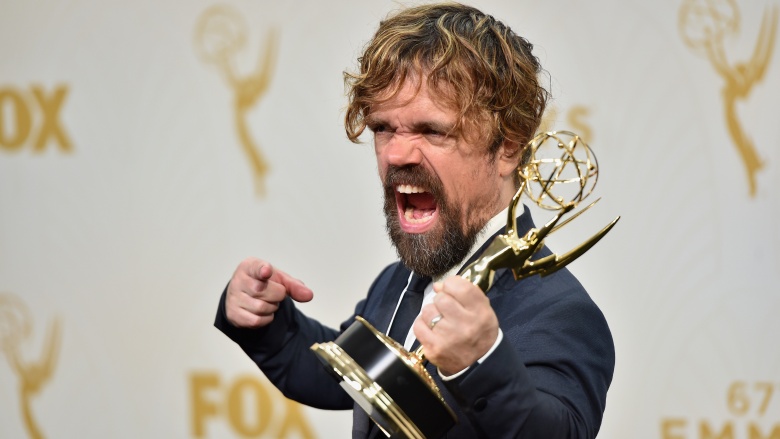The Biggest Video Game Controversies Of 2015
As a famous gamer once said, it was the best of times it was the worst of times: 2015 offered up some of the coolest gaming experiences yet, but it was also riddled with all kinds of controversies, ranging from serious to idiotic. Before we start moving on to grander and better titles, let's press pause and load the corrupted save files that represent the biggest video game controversies of 2015. It's never too soon to look back at some of the industry's most epic fails, and 2015 had a lot of them.
SXSW cancels Gamergate panels
South-by-Southwest has panels on everything from movies to music and video games, but one thing they apparently aren't really big on is irony. This was learned the hard way after SXSW decided to cancel a panel about the harassment of women in gaming when, you guessed it, the women hosting the panel were harassed by thugs from the Gamergate community. Way to send a message and support a cause, SWSW! After SXSW was widely and correctly lambasted in the media for their cowardly actions, the event's organizers reversed their decision, but the controversy has lingered long after SXSW 2015 ended.
Konami drops the hammer on Hideo Kojima
Some of the biggest black marks of 2015 certainly have to go to Konami, which seemed hellbent on alienating every single fan they have left in the world. After an acrimonious dispute with legendary developer Hideo Kojima, Konami did everything they could to punish Kojima, including removing his name from the packaging his magnum opus Metal Gear Solid V: The Phantom Pain, banning him from accepting an industry award praising his work, and cancelling his highly anticipated Silent Hills collaboration with director Guillermo del Toro. Kojima was the target, but fans paid the price too. What a bunch of jerks.
Warner Bros. releases Batman: Arkham Knight for PC knowing it was broken
Batman: Arkham Knight was one of the most highly anticipated games of 2015. But if you were looking forward to playing it on your PC, well, tough noogies. While the console edition was widely praised, the PC version was so riddled with bugs and fatal errors that the game was essentially unplayable. It got so bad that Warner Bros. actually pulled the game from Steam and store shelves for months in order to patch its mistakes. In an age where blockbuster games are often rushed to market before ample beta testing has been done, Batman: Arkham Knight unexpectedly became the symbol of corporate greed. Next time, wait until the game actually works before you sell it, okay?
Star Wars: Battlefront soaks customers
It seemed like the perfect marriage: DICE (the company behind the Battlefield series) and Star Wars Battlefront. What could possibly go wrong? Here's what: blatant corporate greed, courtesy of EA. With most modes of the game restricted to just a handful of maps, many players quickly tired of Battlefront's lack of variety. EA responded by promising future DLC would expand the experience for the low, low price of just $50, or nearly as much as the base game itself. I have to admit, it's a creative solution—if the game isn't complete when it's shipped, simply charge players almost twice as much for the whole thing! You thought microtransactions were bad? Welcome to the world of macrotransactions, where games are purposely pared down at launch to fatten up their DLC offerings.
Steam's security breaks down
Nothing says Merry Christmas like having your Steam account being compromised! That's the exciting Yuletide gift that tens of thousands of Steam users received in 2015, as a security breach unwittingly made their personal financial information available to other users. Valve responded by shutting down the game client service while they attempted to fix the loophole. It was actually the second time in one year Valve users had to deal with security headaches; in July, a bug allowed people to reset the passwords of other users at will. That's the opposite of "security," Steam.
Payday 2 implodes over microtransactions
Has a game ever had a more fitting title than Payday 2? After assuring players for two years that they would absolutely never, ever add microtransactions, developer Overkill Software did just that. And these weren't just cosmetic options. Players who used real world money could buy items that were better than those who didn't, giving pay-to-play users a competitive advantage. Of course, Payday 2 focuses on player vs. environment (PVE) gameplay, so how important that advantage might be is debatable. Many players, however, were infuriated at being lied to, resulting in the public resignations of several of the game's Steam moderators in protest. Now that's a stick up.
Hulk Hogan is erased from WWE 2K16
When word broke that pro wrestling legend Hulk Hogan had been recorded saying racial slurs, the resulting controversy blew up the internet. WWE disavowed its connections to the man who defined the company and profession for decades. The backlash also spread to an unexpected venue—WWE 2K16. In the months leading up to the game's release, WWE 2K16 had been hyped as the biggest and best wrestling game ever made (every WWE 2K game is advertised like that to be honest), with a massive roster of playable wrestling legends. In light of the controversy, however, 2K Games and WWE decided to remove Hulk Hogan from the game, which in turn elicited howls from fans, ripping their shirts Hogan-style in protest.
App Store yanks Confederate flags
After the shocking, racially motivated mass shooting in Charleston, South Carolina last year, a national debate began over the use of the Confederate flag. This in turn prompted Apple to pull pretty much everything from their iTunes app store featuring the Confederate flag, including numerous video games. Unfortunately, almost all of those apps were Civil War and history-based games, where the use of the Stars and Bars is historically accurate and appropriate. Apple faced backlash from gamers, history buffs, and folks who felt political correctness left logic at the door. Eventually, Apple relented, reinstating the previously removed games on a case-by-case basis.
Destiny murders Dinklebot
Destiny is one of the most popular games of its time, but right from jump street, it had one glaring problem: superstar actor Peter Dinklage's lethargic voice acting. Dinklage, a fan favorite main character on Game of Thrones, sounds like he phoned in a monotone, uninspired effort as the voice of the AI that guides you through the game. Given Dinklage's high profile, it was a shock when developer Bungie not only fired Dinklage, they actually removed his dialogue entirely from the game and re-recorded his lines with veteran voice actor Nolan North. Since then, some contrarian fans have actually lamented the death of the Dinklebot, suggesting it was better than North's effort. Dinklebot should've been able to ask for trial by combat before being erased—or Bungie could've just included an option to keep Dinklage's original dialogue.

